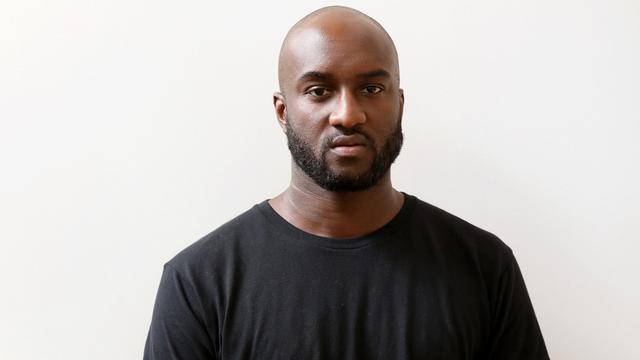Virgil Abloh, the creative mind that invented the way we dress today and changed the world of luxury forever
By F. Javier Girela
Less than a decade was enough for Virgil Abloh to turn our wardrobe upside down. The American opened the doors of his firm Off-White in 2012, at a time when ultra-tight aesthetics triumphed in half the world. However, his proposal collided head-on with everything established. His bet was the street, pure and simple, in ethics and aesthetics.
If you're wondering when we almost inadvertently went from skinny suits and skinny jeans to sportswear and sneakers, lots of sneakers, Virgil Abloh is the answer. He took what we had in the closet, that is, the sweatshirts, t-shirts and sneakers –until then reviled–, and printed his famous lines and arrows on them to give them back the label of cool. Being cool was once again possible for everyone, exclusivity no longer belonged only to an elite capable of wearing a skinny mold to fit in. His pieces were sold out in a matter of seconds, especially the sneakers, which soon caught the attention of Nike. His have become the most coveted sneakers on the market and whoever wears his reddish bridle (distinctive stamp of his designs) treasures a status in the new imposed sneaker culture.
It was Abloh who opened the doors of luxury to the signature of the swoosh. Still today, the revision of the classic models of the sports brand under the American gaze are the most sought after designs among collectors and fans.
@esnyvolsix WHAT GEORGIA😭😭
— anya Tue Mar 23 00:48:04 +0000 2021

Then Louis Vuitton arrived, placing the baton of its men's line in her hand. The first African-American designer running a luxury house. In 2018 he presented his first collection and, once again, he brought the public to its feet. There were t-shirts, sweatshirts, sneakers, yes, but also the luxury that the classic customer was looking for. Suits paraded as we had never seen them before, leather goods, travel objects and, in its background, the unique desire that emanates from a great maison with tradition. So much so, that his designs made the house one of the most valued and profitable of the 21st century. His pieces were sold out even before they hit the market on a waiting list.
Many called Virgil Abloh the King Midas of fashion, and he surely is. Therefore, it is not surprising that one of the most recurring questions in his few interviews was what is the key to success? Such an abstract question deserves a similar answer, and sometimes it is difficult to find it, although in this case we can find it. The answer to his success lies precisely at the very moment that he finished his first show for Louis Vuitton.
Between the spotlights of a radiant morning in Paris, the American came out to say hello, running down a long runway until he threw himself into the arms of Kanye West. This hug at the end of the show was an acknowledgment between friends: "Kanye was the one, when it was absolutely unpopular to say it, said that he was not going to allow himself to be pigeonholed," Abloh explained in an interview with British Vogue. "He was the one who fought for us , who took us for the first time to a fashion week, to that place we couldn't enter. That dream is as much yours as it is mine. In my dream, it is he who crosses the catwalk. One of the things that stressed me the most about that show was not seeing me on the catwalk, but the community. That show was us. That link would not have been possible if Kanye had not raised his head encouraging me to continue and yelling at me that this was the future of fashion. So I want people to know that the guy who fought for this moment is a part of it and is uniquely attached to it."
Virgil Abloh's success was being a normal guy. Normal in his ways and in his gestures. He managed the fair protagonism. As soon as he could, he put his friends in the front of the photo so he could stay in the back showing his head. He democratized aesthetics so that being cool, with or without his clothes, was something for everyone and not just for a privileged few. He was aware that the party was better the more people there were. And with this he has not only been responsible for changing the way of dressing in our time, but also the fashion business, the way of making money and the conception of luxury in the 21st century.
When the history books turn to what fashion was like in the 2000s, experimental streetwear, tracksuits and sneakers will be the answer, and Virgil Abloh will be the star of this chapter.




